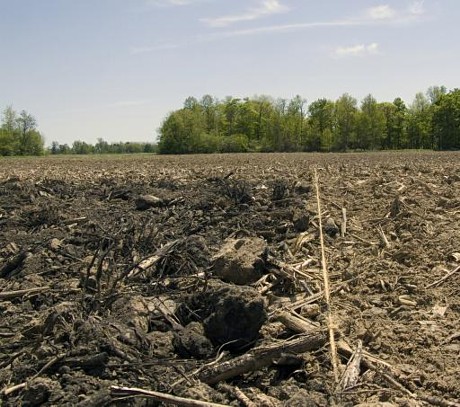
Using Biochar as a soil amendment can be beneficial for African farmers working in rainfed and under dry conditions with poor sandy soils.
Biochar is a type of charcoal carbon-rich substance derived from the pyrolysis of biomass such as wood and other organic material made at temperatures between 350°C and 700°C.
Farmers worldwide have been using Biochar for centuries going back since Biblical times. Biochar has several advantages for soil and environmental applications including:
- Soil structure improvement and more efficient use of additional fertilizer by crops.
- Crop improvements with less fungi and other soil-born pests and diseases.
- Carbon sequestration.
- Reducing emission of Nitrous Oxide – a potent greenhouse gas.
- More efficient use of organic left over of organic content.
- Environmental clean by product.
In Africa, Biochar has been explored as a tool to address various agricultural and environmental challenges.
How does is works?
Biochar is a negatively charged compound that helps improve the Cation Exchange Capacity (CEC) of the soil. This increases the retention of soil nutrients and reduces the loss of valuable nutrients in the soil. The current interest surrounding Biochar is its ability to capture carbon from the atmosphere and serve as a carbon sink into the soil.
Biochar can be obtained as a byproduct from several industrial processes such as energy production and production of activated carbon. Biochar is a lower-risk strategy than other carbon sequestration options, in which stored carbon can be released, for example, by forest fires, by converting no tillage back to conventional tillage, or by leaks from geological carbon storage.
Techniques to produce Biochar are, for instance, used through Barrel TLUD (Top Lit, Up Draft) kilns and the “Trench” as well made from bagasse as byproduct of sugarcane production.
Potential of Biochar use in Sub-Sahara Africa
In the dry rainfed areas of Africa, soils are low in organic and nutrient material. The structure can be enhanced by adding tones of dry organic or composted material. Up to 10 tones/Ha or more are needed to raise the organic levels. However, with Biochar farmers can enrich diverse and poor soils in Africa quicker for small- and large-scale farming usage.
Carbon markets are growing and Biochar’s ease of use makes it a good candidate for clean development. The amount of Biochar used is not limited in the amount that can be applied unlike tree planting where land area available can be limited. Biochar is a lower-risk strategy than other carbon sequestration options, in which stored carbon can be released (lost), say, by forest fires, by converting no tillage back to conventional tillage, or by leaks from geological carbon storage. Once Biochar is incorporated into soil, it is difficult to imagine any incident or change in practice that would cause a sudden loss of stored carbon.
What users of Biochar should know
For farmers intending to apply Biochar to soils, consider:
Apply in split application Biochar than a single large quantity at once.
Biochar has high Cation Exchange Capacity (CEC), it may result in the immobilization of even the little nitrogen in the soil and render the soil more nitrogen deficient. Thus, extra fertilizer must be added to the soil to release nutrients to the plant roots for growth.
Given its longevity in the soil, apply in small doses (2-3 tons p/Ha or every 3-5 years), rather than in larger quantities at once.
Apply Biochar onto the soil and hallow it into the first 5 cm of the soil.
Israeli interest
Israeli sciences, technology and business offer more 75 years’ experience transforming dry, sandy soils into more fertile soil through adaptive technology and practical other innovations in agriculture. Commercial farmers and businesses in Africa can benefit from Israeli practical soil enhancement technologies and strategies developed and use of Biochar in Africa.
The management team of the Israeli Interest and Awareness in Africa Association (I2A3) is already involved in agricultural projects in Sub-Sahara Africa which are developing innovative agricultural and soil and agricultural enhancement technologies to sustainably and commercial production units in collaboration with Israeli based R&D, commercial and public sectors. We strongly believe that enhancement of more efficient use of organic fertilizer-based substances has immense potential to transform Sub-Saharan farming and are therefore currently looking for partners who share this vision.
IBI Publications: